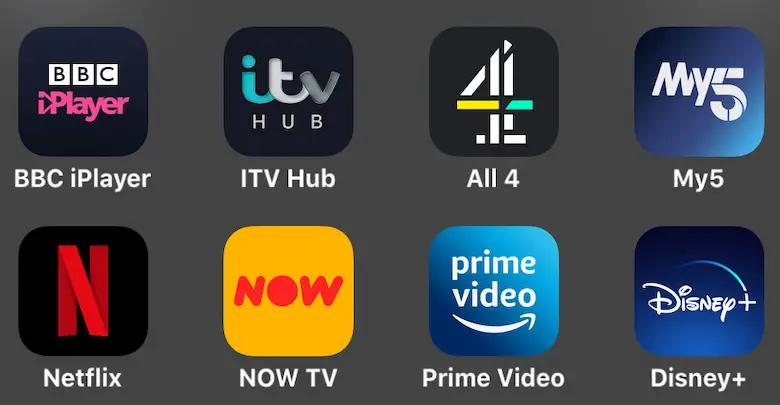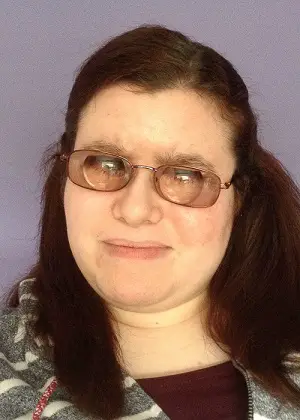
Petition to make audio description available on ALL films, TV programmes and streaming services
A petition has been launched to make audio description (AD) compulsory on all films, TV shows and streaming services. Emma Purcell – our news editor and writer at Disability Horizons and blogger at Rock For Disability – started the campaign as she felt it was unfair that blind and visually impaired people are missing out on blockbuster films, must-see box sets and classic favourites from past decades.
Why Audio Description Matters for Equal Access
For blind and visually impaired people, audio description is essential for enjoying films and TV shows. Despite advances in accessibility, many streaming services and broadcasters still fail to provide it consistently.
- Audio description provides narration of key visual elements like facial expressions and scene changes.
- In the UK, broadcasters are required to meet Ofcom accessibility quotas, but streaming services often lack regulation.
- Campaigns like this petition push for stronger legal requirements for all platforms.
Advocacy groups and disabled people continue to demand fair access to entertainment, ensuring everyone can enjoy media equally.
How You Can Support This Petition
Improving accessibility in media requires collective action. Here’s how you can help:
- Sign and share the petition to increase visibility and pressure on policymakers.
- Contact streaming platforms and TV networks to request more audio-described content.
- Use accessibility tools like Audio Vault to find audio-described films.
Equal access to entertainment is a basic right, and every action taken today moves us closer to a fully accessible media landscape.
There are two million people living with sight loss in the UK and having access to films, television programmes and streaming services is just as important to them as it is to the rest of society.
What is audio description?
Audio description is vitally important for people with sight loss because it describes the scenery, colours, facial expressions, body language, action sequences and written text/images (e.g foreign subtitles, smartphones, computers, newspapers, photos).
Currently, TV channels and film networks have to only provide audio description on 10% of their films and TV shows. But people with sight loss want to increase this to 100% so that they can access the same films and programmes as the sighted community.
The difficulties accessing audio descriptions
For many blind and partially sighted people, they face coming across a trailer for a new film or TV series that interests them, only to discover that audio description is not available on the film or show itself.
In some cases, a person with sight loss might watch the first series of a TV show with audio description, but then when the second series airs that audio description is not available.
Moreover, if somebody with sight loss wanted to catch up on a previous episode or box set, most of the catch-up services remove the audio description version after a few days or don’t provide audio description on certain devices.
The benefits of audio description
Making audio description available should be a compulsory part of creating and distributing a film or TV series and not just as an additional extra. The audio description should be included in the filming budget and not just thought of if the network has money leftover.
In addition, students training to be filmmakers should be taught about the importance of accessibility in their films and programmes, and to include this in their planning stages of producing media content.
Having audio description will bring bigger audiences to TV channels and films, and it will give blind and partially sighted people an unlimited choice of TV shows and films to watch – just like everyone else.
 Emma Purcell is a freelance journalist and blogger from Alton, Hampshire. She runs her own blog, Rock For Disability, in which she writes about life as a disabled person, as well as music reviews and interviews.
Emma Purcell is a freelance journalist and blogger from Alton, Hampshire. She runs her own blog, Rock For Disability, in which she writes about life as a disabled person, as well as music reviews and interviews.
Emma is also a loyal member of the Disability Horizons team as our news editor and feature writer. In addition, she is the Hampshire Champion for the disability social enterprise AccessAble, which provides detailed access guides to more than 100,000 venues across the UK.
Emma was born with quadriplegic cerebral palsy and uses a powered wheelchair. She also has an eye condition called Acute Retinal Necrosis, which was caused by a virus in her retina. She lost all her sight in her right eye aged eight and began losing the sight in her left eye aged 11. She currently has approximately 20% vision remaining in the left eye.
Emma started this petition after constantly finding audio description unavailable on many popular TV shows and films.
She says: “Audio description is such an important lifeline for me and so many other people with sight loss. I know big leaps have been made over the past 25 years to make audio description widely available, but more needs to happen to make all films and programmes fully accessible to blind and visually impaired people.
It frustrates me when I’m scrolling through cinema listings, TV guides or streaming service menus that I have to check if it has audio description before watching it. It’s like the equivalent of a wheelchair user finding out if a building is accessible. Without AD, I won’t be able to watch that film or box set, which means I miss out on the conversation and the production company misses out on audience numbers. It feels like if it doesn’t have AD, blind people are not welcome.
Also when I was writing up my blog post on accessibility on streaming services, I discovered Amazon Prime and Now TV had no audio-described content at all that I know of.
We need audio description available on ALL films, TV programmes and streaming services and that’s why we need hundreds of thousands of people signing and sharing my petition. This can then lead to securing action from production companies, channels, streaming services and the government.”
Sign the petition
Emma’s petition has reached over 3690 signatures so far but is in need of thousands more for real change to happen. To sign and share the petition, visit https://www.change.org/ADForAllUK and use the hashtag #ADForAll
You can also follow Emma Purcell on her blog Rock For Disability, Facebook @RFDisability and Twitter @P94Emma.
By Disability Horizons
More on Disability Horizons…
- Disabled veterans take on the World’s Toughest Race in a new Amazon Prime series
- 80% of disabled people have experienced accessibility issues with online streaming services
- Blind presenter and vlogger Lucy Edwards on being herself and making a difference
- Blind musician Sirine Jahangir on her Britain’s Got Talent audition
Originally posted on 21/08/2020 @ 7:00 am